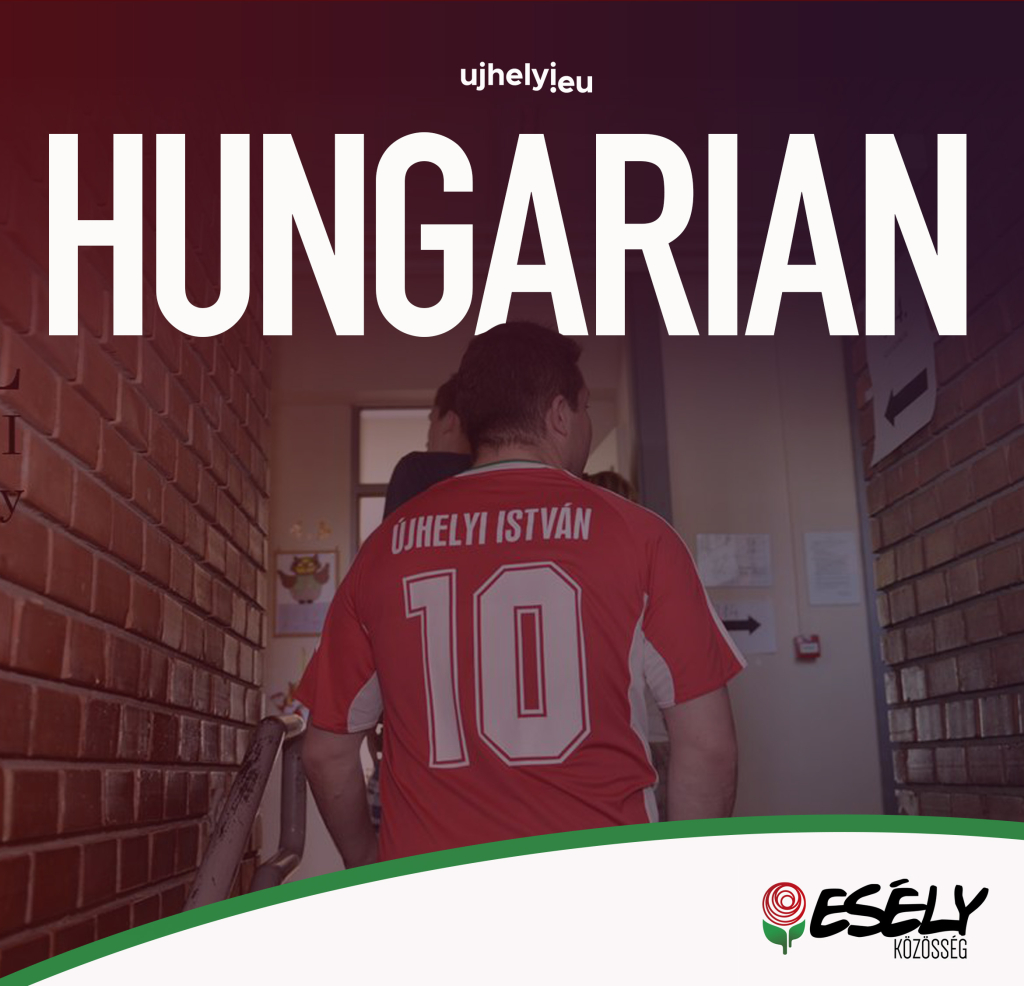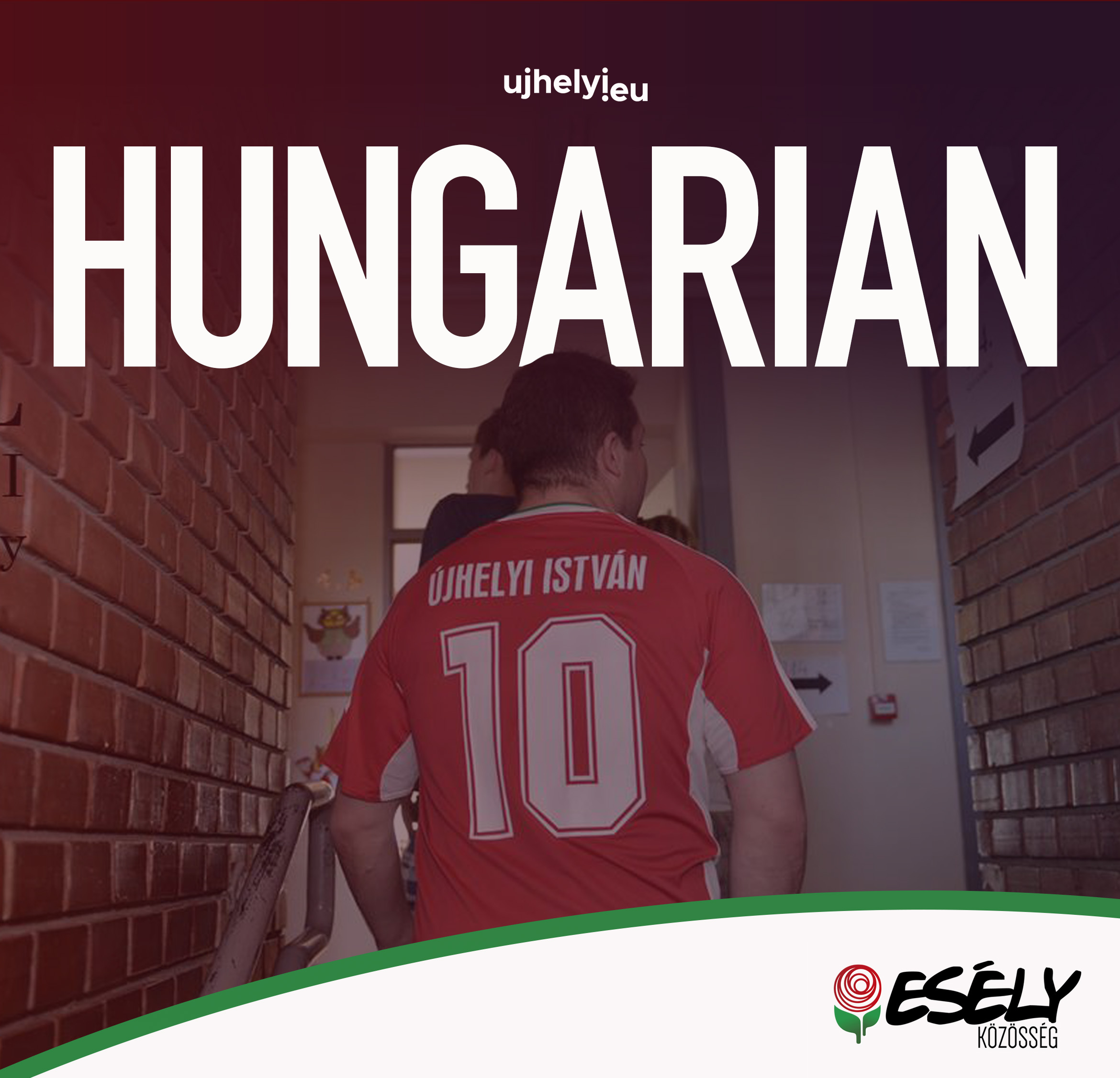Published: 27.11.2023

It took me quite a few attempts to write today’s open letter: it was difficult to juggle between my emotions, my desperation and my sincere desire to build bridges. I started writing this text many times because, sadly, I had to refine it so that it would be misunderstood and misinterpreted as little as possible. Needless to say, I am aware that enough of these will happen to it, as it is.
It would be long and pointless to argue about who or what tore apart our Hungarian nation and for what reason; who erected the first intellectual barricade of our present generation, or what caused Hungarian and Hungarian to dig themselves into the ideological trenches of our lives in opposition to each other. At one end of the frontline we have drawn ourselves, the intellectual civil war going on in the country is because of those who „shoot protesters’ eyes out”, at the other end, because of „O1G” (i.e. acronym for “Orbán is a MF”) and his gang of thieves.
I too have an opinion on what the first, conscious political move was to deliberately antagonise the electoral camps (I put this at the time of the Fidesz hijacking of the national cockade and the „homeland cannot be in opposition” statement), but as I indicated, we can leave that to subjective assessment. I am, however, firm and unwavering in my view that Viktor Orbán and his party, who won a two-thirds, i.e. unlimited mandate with the change of government in 2010 – and at first, in fact, quite rightly, due to the wrongful and blameless actions of the previous political period – did not use this truly exceptional opportunity, and with it the trust of the then much broader and more colourful mass of supporters (if you like, the entire country), for what it was intended.
The prime minister of Fidesz had every means and opportunity at his disposal not only to pursue his own economic, political and ideological goals, but also overcome the mistakes of the post-change of regime elite struggle and finally break the Hungarian curse, i.e. that we are somehow always ready to gleefully pluck each other’s eyes out as pawns on the chessboard of the powers that be. Even if they are only a little bit honest with themselves, the supporters of the current course cannot seriously think that Orbán has managed to truly unite the Hungarian nation in the last thirteen years. His own camp, yes, obviously, but the Hungarian nation is not just made up of the few million people who now follow and support the Prime Minister. And this is an important point, and without fixing it, no matter what the government puts on the billboards, Hungary will never really succeed, or really be a winner. It will never be what they lie about now. As long as we keep cutting each other out of the Hungarian nation, we can believe ourselves to be giants, but we will remain the dwarf version of ourselves.
I thought it important to write again about the harmful atmosphere of Hungarianism and Magyarism, because it is becoming increasingly toxic for our shared homeland, and this (while certainly beneficial for a narrowing circle of interests) is the very abyss for the long-term successful development of Hungary and our nation. If we are really honest, we must also recognise and acknowledge that after thirteen years of NER, many committed opposition members are also unsure whether there is anything left at all to support/like/favour here if it is also important to Viktor Orbán and Fidesz.
Are you an oppositionist if you like the renovated Várkert bazaar, if you sing Ákos’ songs with enthusiasm, or if you follow the success of the Hungarian football team with admiration? Is it possible to go on a joyful excursion with your child on the Felcsút narrow-gauge railway at the weekend, if you ask yourself: was this really necessary to build this here, for so much money? Of course, it is, very much so!
I like the Várkert Bazaar, I often hum Ákos songs involuntarily while driving, and I screamed myself hoarse at the last European Championship matches of the national football team. That doesn’t make me any more Hungarian or any less against the system. The thinking that approaches and interprets everything through a black-and-white matrix, from whichever side, is completely degenerate. Just as I am no less Hungarian if I consider the football stadium built next to the Prime Minister’s garden, partly with public money, to be a problem and absurd, just as the fact that the budgets of football teams stuffed with public funds are, in total, much bigger than the debts of Hungarian hospitals, for example.
I continue to believe that we can be proud of the national team’s successful march, which has not been seen for decades, but I also believe that the public funding of football in Hungary is unjustifiably disproportionate, because the effectiveness of the academic system for youth football does not justify this. (As far as I know, the deservedly celebrated Dominik Szoboszlai also basically came out of his father’s youth academy, not the publicly funded academy in Felcsút.) The passion for football, the rooting for the national team and the legitimate questions raised about public funding can be perfectly compatible. That’s right. Is anyone who scolds the coach after a bad game no longer a true fan? In many cases that is when they really are.
Everything can be argued about, facts and figures can be put up against each other, even a religious debate is alright, but in a normal, healthy society this should have nothing to do with the national sentiment. How could it? And those who have no room on themselves anymore to write ‘Hungary comes first’ are desecrating their own supposed national commitment when, for example, they take away from me the right and the opportunity to be genuinely happy about the victories of the Hungarian football team.
I am indescribably disgusted by the way in which the ruling party’s servant base organised itself after the national team’s group victory to rile up the masses beyond the party and cast doubt on the Hungarian identity of anyone who is not equally religiously passionate about football. Just as I was disgusted by how some people gleefully shook hands with the Nobel Prize-winning writer immediately after ‘imrekertész’-ing him in a derogatory manner. Just as I am disgusted by the way in which unachieving, arrogant little minions call other people ‘Romanian’ and ‘Bulgarian’, while seeing and portraying themselves as outstanding figures of our common Hungarian nation. Well, I say it only to them: the „greatest Hungarian” (after Kossuth’s characterisation) is by common consent called István Széchenyi. He was born in Vienna and only learned to speak Hungarian correctly, even as an orator, in his early thirties. I imagine that if Széchenyi were alive today, the government parties would be labelling him as a „Labanc” (the term originally referred to Habsburg troops and meant „disloyal”) and chasing him with microphones to see if he was rooting for the Austrians. It is utterly absurd and pathetic. You will be ashamed of yourselves for this pettiness.
I am Hungarian and this is a special feeling. There is nothing like it. I am proud to be a member and representative of this nation. As a committed social democrat, I believe in a just, solidary and European Hungary and, as such, I am an adamant and committed opponent of the NER, which stands against it. I consider the members of the current government to be leaders who are detrimental to the present and future of the country and who, in my opinion, are steering our common country in the wrong direction and even appropriating its wealth. But I never doubt their Hungarian identity and their commitment to the nation. What they use the latter term for, I have already criticized and attacked, but it would never occur to me to exclude them or anyone else who claims to be Hungarian from our common nation.
As the old joke goes, in hell Lucifer doesn’t put a guard next to a cauldron full of Hungarians because if someone tries to climb out, another one will pull him back in. Has an extremely bad aftertaste, but unfortunately just as apt. We Hungarians tend to turn on each other, always finding the cause of our own difficulties in someone or something else. Populist governments are happy to exploit this trait. In fact, Hungary will only be truly united and strong if we adopt the first national minimum of not measuring each other’s Hungarianness. Especially if we sing as an alternative anthem that we are of one blood. Then let the benchmark be performance, diligence and usefulness to the nation. For, whether the people in power responsible for national sentiments like it or not, the one thing unites us inextricably is our Hungarianness.
dr. István Ujhelyi
Member of the European Parliament / Founder of the Community of Chance
26/11/2023
